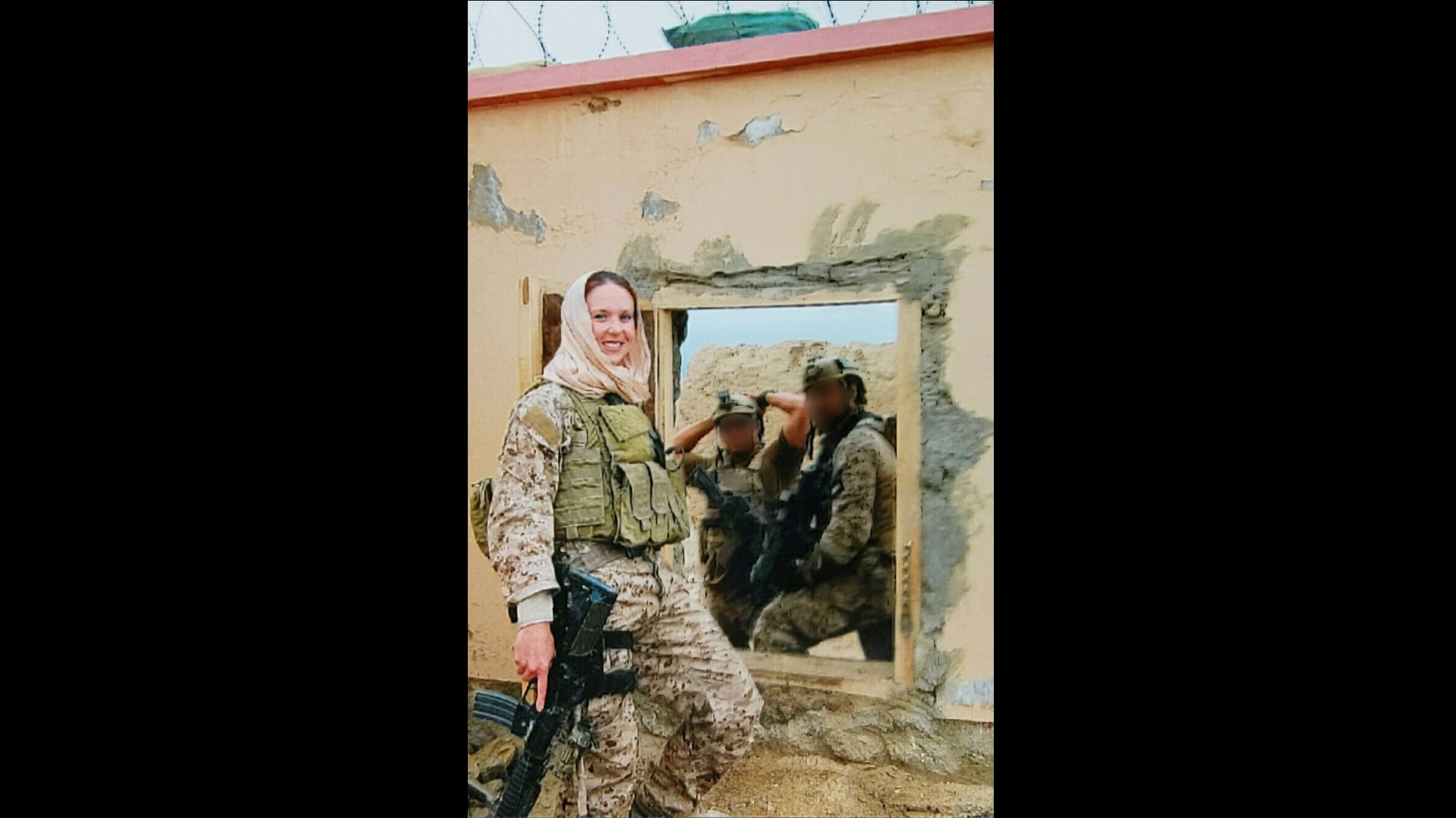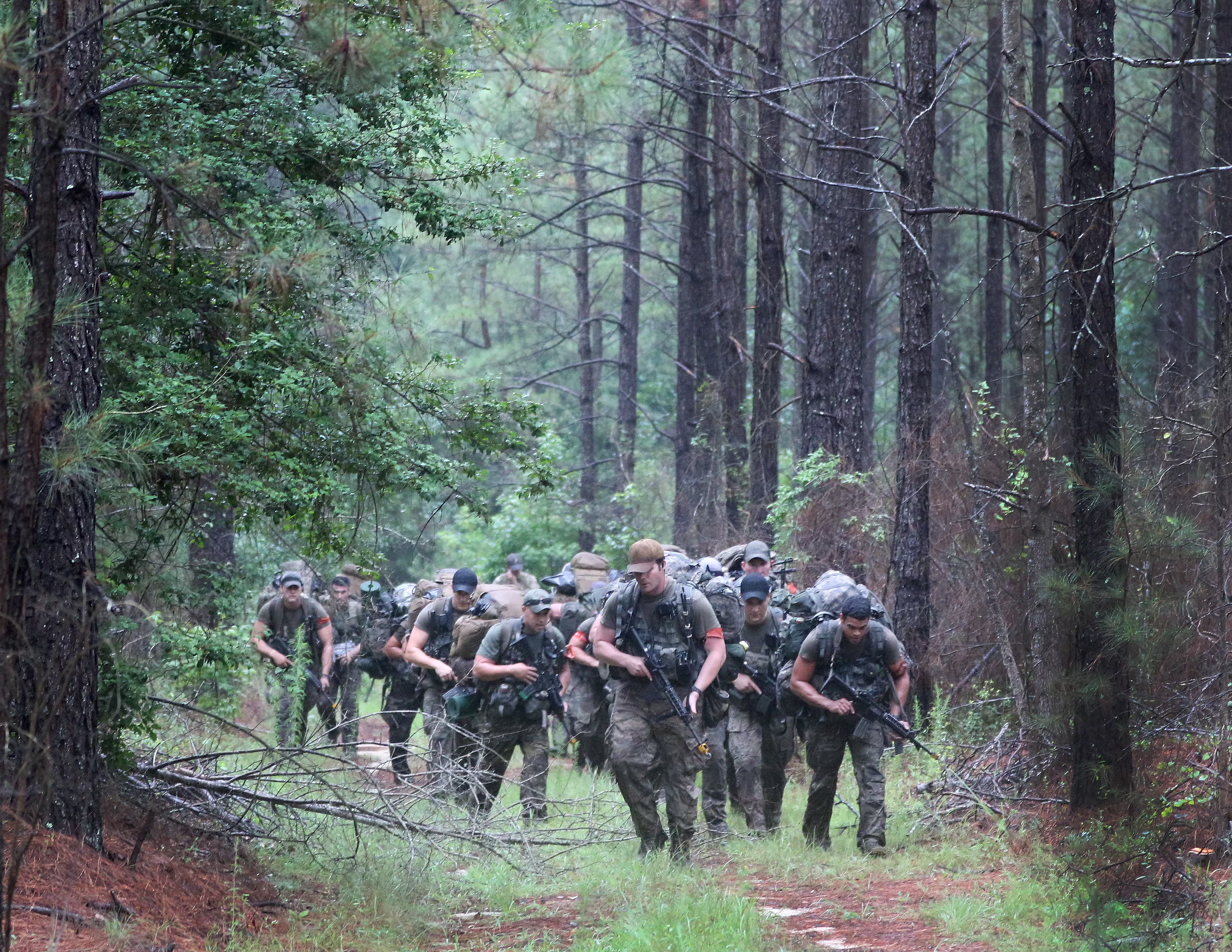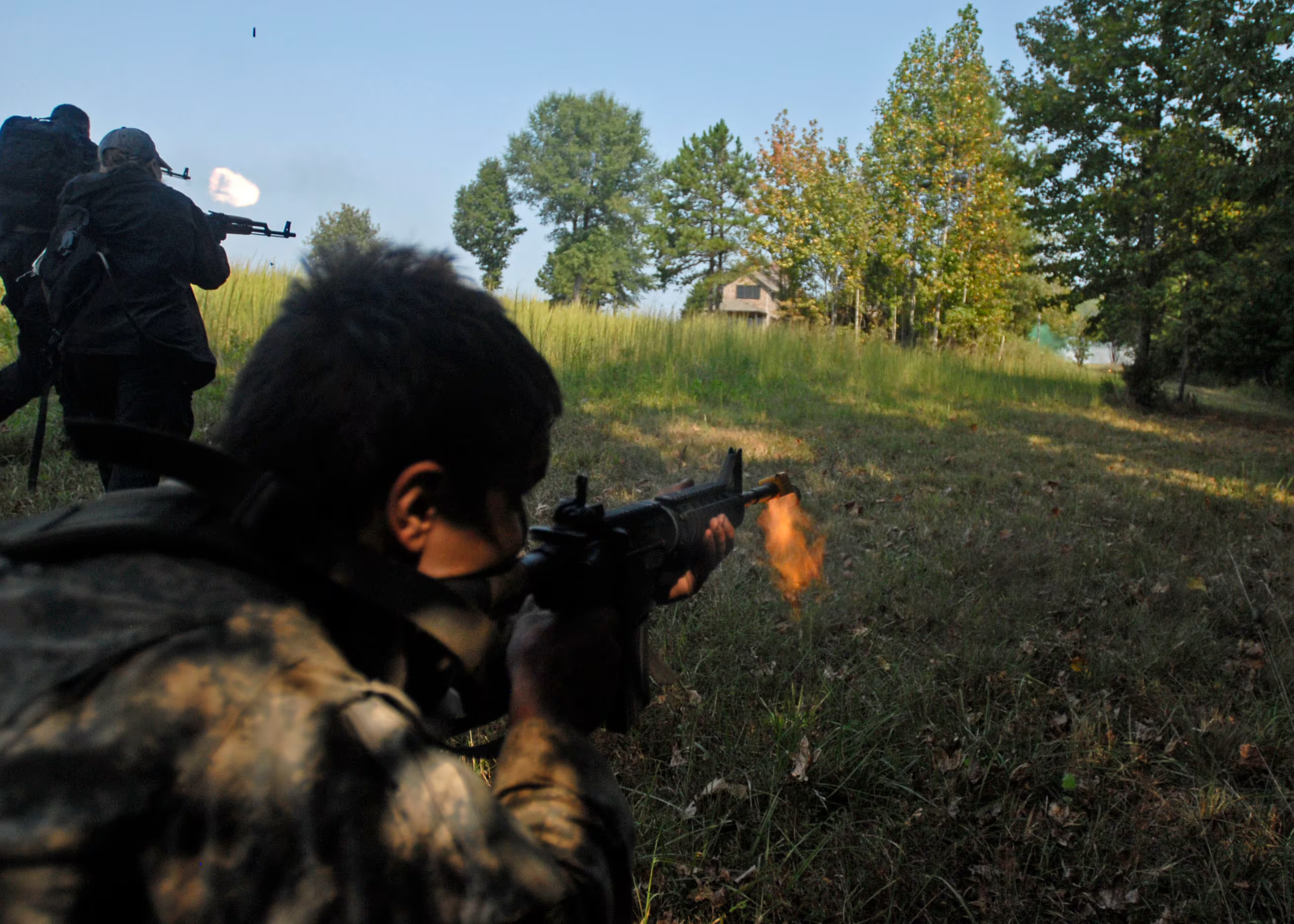The first woman to complete the Army’s Special Forces Qualification Course and move on to a Green Beret team graduated today, according to U.S. Army Special Operations Command.
The newly minted Green Beret, a National Guard soldier, will now report to a Special Forces Group for assignment to an operational team — a groundbreaking moment not only for the Army but for the entire military.
But she is not the first woman to complete the course.
Then-Capt. Kathleen Wilder did in 1980, though she was not permitted to graduate at the time. After Wilder filed a sex discrimination complaint, the Army determined that she had been wrongly denied graduation, Richard E. Anderson, her military attorney through the ordeal, told Army Times.
Wilder, a former military intelligence officer, was ultimately allowed to wear the Special Forces Tab when it was created in 1983, and continued to do so over her 28-year career until she retired as a lieutenant colonel.
“This is what I was hoping for, way back in 1980, that other women would be allowed to go through the course,” Wilder said during a telephone interview with Army Times. “Unfortunately, it didn’t materialize [then]. They closed the doors so no other woman could go through until 40 years later, when the ban was lifted on women being in the combat arms.”
RELATED

Wilder, whose story was detailed by the New York Times in February, attended the Special Forces officer course during a time when Special Forces was an “additional skill identifier” that she could earn without being in a combat career field.
Wilder was already serving as a jump-qualified intelligence officer at 5th Special Forces Group when she put in an application to attend Special Forces training herself.
The desire, she said, arose during an exercise at Hurlburt Field, Florida. Wilder was giving an intel briefing to a Green Beret team. The soldiers were to be inserted and move overland for a reconnaissance mission on a notional enemy position.
“At one point, the leader of that group, a young captain, raised his hand and goes, ‘Excuse me, ma’am, but you’re talking about nighttime going over rough terrain with 80 pounds in our rucksack — I don’t think we can make it back to our exfil point in time,‘” Wilder recalled him saying.

“Do you know what it’s like to carry an 80-pound rucksack over this terrain at nighttime?” the Green Beret captain added.
“So the [operations officer] and I decided to take a break right about then, and we go out of this briefing tent, and I said, ‘You know, I got to admit, that guy is right. I don’t know what it’s like,” Wilder said. “How would I know? [Military intelligence] officers don’t do that.‘ ”
The other officer, a male major at 5th Group, agreed to help her put together a package to attend the Special Forces officer course. Other men involved in the approval process weren’t so helpful. The package was disapproved multiple times, but it got “the ball rolling,” Wilder said.
She looked at all the regulations and couldn’t find a single one that said the course was male-only. Wilder brought the issue to a Defense Department-level office and explained that she was not seeking a combat career field, only the knowledge of Special Forces operations that would be required of her if she was a male intelligence officer at 5th Group.
The Pentagon office agreed, and Wilder was given the green-light to attend the course in the summer of 1980 at Fort Bragg, North Carolina.
“I had been there for four years. I knew all the players and I was well-liked and we all had parties together, happy hours together, you name it,” Wilder said. “The moment I got accepted, it was like I crossed a major line and the ‘you-know-what’ hit the fan.”
Most instructors, she explained, wanted her out of the course, and training events seemed geared toward pushing her to fall out of ruck marches. But the real controversy arose the day before graduation.
Wilder was called into the office of the head of the Special Forces school and was told she was being dropped from the course for “caching equipment during Robin Sage,” the culminating event where Green Berets raise a notional army of guerrilla fighters to fight the enemy. The accusation shocked Wilder, who said it was common practice to hide items like portable butane stoves in advance.
“Every single one of those students did that,” Wilder said. “I had been there for four years. I knew what would get you kicked out and what wouldn’t. And I had gotten the briefing before even going out to the field on the things we could not do and nowhere did they say that we couldn’t cache equipment.”

Wilder even recalled what happened when her cache was discovered by instructors. But she wasn’t the only one. Four other students’ caches were also uncovered. All five had to do another land navigation exercise while other students got to rest, even though they all had caches as well, but they just didn’t get caught, according to Wilder.
That was a slap on the wrist, and it was a normal punishment that only turned into an excuse to eliminate Wilder, she said. An Army investigation by officials from Training and Doctrine Command ultimately agreed with her.
A copy of the investigation’s determination, provided to Army Times, showed that Wilder was declared a graduate of Special Forces Officer Course Number 2-80 and awarded the additional skill identifier of “5-Golf,” for Special Forces. The document was signed by Gen. Donn A. Starry, who helmed TRADOC at the time.
Starry ordered Wilder’s records to be amended as appropriate and noted the national media attention her case garnered when she was originally denied graduation.
“It is bound to get further publicity,” Starry wrote in a memo detailing the investigation’s conclusion. “We will make an appropriate low key press release.”
The woman who graduated Thursday also garnered national media attention. And a low key press release was issued accordingly.
But her story remains largely unknown for the time being.
The official policy of Army Special Operations is that the command will not “release the names of service members in training or assigned” to its units “due to unique missions assigned upon graduation,” USASOC officials said in a press release.
Lt. Gen. Fran Beaudette, USASOC’s commanding general, attended the ceremony on Thursday and spoke to the new Green Berets there.
“From here, you will go forward and join the storied formation of the Green Berets where you will do what you are trained to do: challenge assumptions, break down barriers, smash through stereotypes, innovate and achieve the impossible,” Beaudette said during the graduation. “Thankfully, after today, our Green Beret men and women will forever stand in the hearts of free people everywhere.”
Kyle Rempfer was an editor and reporter who has covered combat operations, criminal cases, foreign military assistance and training accidents. Before entering journalism, Kyle served in U.S. Air Force Special Tactics and deployed in 2014 to Paktika Province, Afghanistan, and Baghdad, Iraq.





